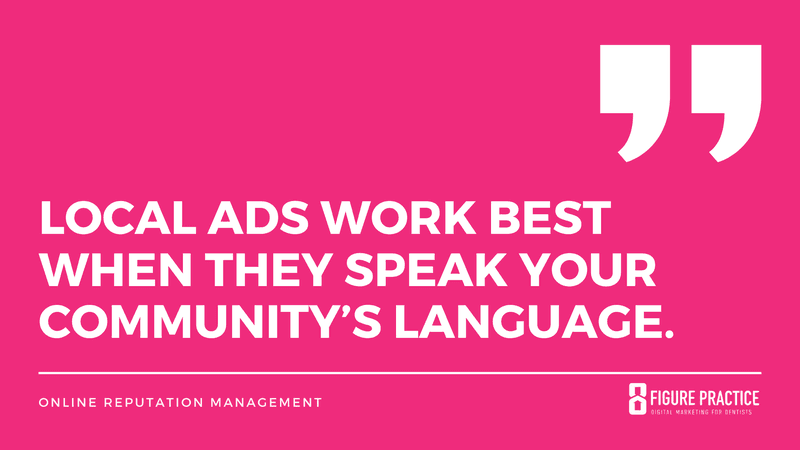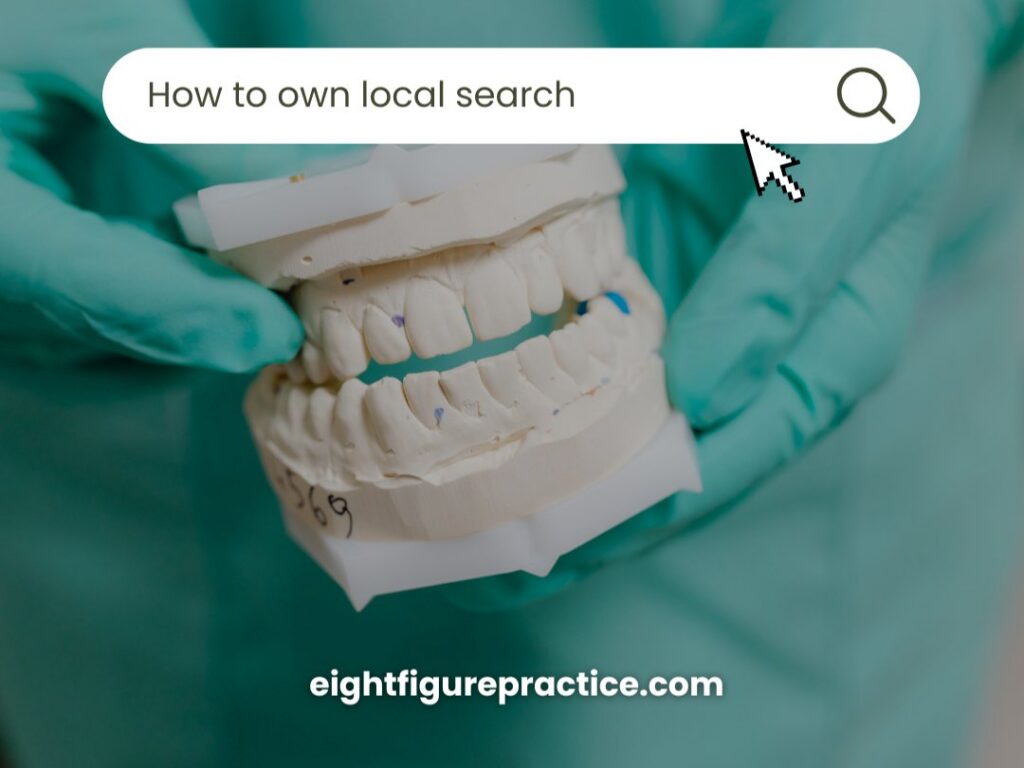
What your patients see online now shapes what they do offline. If your reviews drop or your name appears next to negative content, new patients often go elsewhere. You might wonder, “Is online reputation management worth the cost?” If growing your practice or selling at peak value is the goal, it’s something you can’t ignore. We’ll show you how smart dentists use it to get ahead—and why you should too.
Key Takeaways:
- Online reputation is shaped by reviews, search results, and social media presence.
- Negative content can lead to lost sales, trust, and job offers; reputation repair raised leads by 40% in one case.
- Main platforms shaping reputation: Google, Yelp, Facebook, Instagram, LinkedIn, forum sites.
- Recommended ORM tools: Sprout Social (teams), Podium (local shops), Brand24 (Gen Z), Brandwatch (detailed insights), Mention, and Google Alerts.
- Best review responses: Acknowledge, stay calm, offer help; use templates where helpful.
- Reduce negative content rankings through SEO and fresh posts; remove only when criteria allow.
- Positive reviews, testimonials, and customer feedback lead to higher conversions; use tools like Podium and Birdeye to simplify the process.
- Tools for small businesses: ReviewTrackers, Reputology, Broadly.
- ORM pricing runs from $30/month (basic) to thousands per month (enterprise scale).
- Choose ORM providers with solid plans, relevant experience, platform integrations, and a record of delivering results.
Online Reputation Management And Why It Matters For Every Business
Online reputation management has become one of the most important parts of running a successful business today. Because most people make decisions based on what they see online, your digital image can either fuel growth or create setbacks. Reviews, search results, and social media conversations all combine to create your reputation. If people find negative news, harmful reviews, or outdated content, they may quickly move on to a competitor. However, when your reputation is positive, trust builds faster, new customers arrive more often, and long-term value increases.
Online Reputation Management Directly Impacts Business Results
The way people perceive your business online has a direct effect on sales, partnerships, and even hiring. Negative reviews or poor search results reduce trust almost instantly, while strong ratings and positive stories attract more customers and better employees. For example, think about the last time you booked a restaurant or hotel. Chances are, you skipped the two-star option and chose the one with higher ratings. That same logic applies across every industry.
Because reviews guide behavior, companies must treat them as seriously as advertising campaigns. In fact, studies consistently show that people trust online reviews more than ads. A strong reputation on platforms like Google, Yelp, and Facebook can bring in buyers, investors, or even new team members. On the other hand, ignoring online reputation management can lead to lost opportunities.
- Positive reviews increase conversion rates and reduce customer hesitation.
- Negative reviews or unaddressed complaints reduce trust and hurt long-term growth.
One dental practice learned this lesson the hard way when a single harsh Yelp review appeared on the first page of Google. Their new patient numbers dropped quickly. By responding politely, encouraging satisfied patients to leave feedback, and creating fresh blog content, the practice reshaped its online story. Within six months, their leads increased by 40%. This demonstrates how much control businesses can regain with intentional effort.
Utilizing Multiple Digital Channels
Today, your online reputation is shaped by more than just Google results. People look at Yelp, Facebook, Instagram, LinkedIn, and even niche forums. Search engines often display content from these platforms, so your digital footprint extends far beyond your own website. Because of this, businesses must claim and update their online profiles, optimize their Google Business page, and monitor mentions across social platforms.
Each platform plays a role. Google dominates search, Yelp influences local service choices, and social media builds brand personality. Even sites like TripAdvisor or Healthgrades matter for certain industries. By updating every profile with accurate information, clear branding, and consistent messaging, businesses protect themselves from negative first impressions.
Online Reputation Management Is A Core Part Of Digital Strategy
Reputation management is no longer optional in digital marketing. Because buyers rely heavily on reviews and online content, businesses must treat this as part of their overall growth system. Marketing has evolved from print ads and mailers to tweets, likes, and online stars. If your reputation signals doubt, customers will quickly leave.
A strong online reputation management plan allows you to guide the conversation. It helps you respond to concerns, amplify positive feedback, and prepare for risks. Viral posts can spread quickly, and one bad response can damage a brand. United Airlines is a well-known example of how mishandling an incident led to massive financial loss and negative press. By contrast, Starbucks responded quickly to a controversy by admitting mistakes, closing stores for training, and earning back public trust. These examples show why reputation management is so critical.
Businesses also benefit from monitoring tools like Sprout Social or Birdeye, which track mentions across platforms. Even a simple Google Alert can provide early warnings. When recurring issues appear, companies can fix them before they escalate.
- Monitoring reviews and mentions helps prevent crises.
- Responding quickly builds trust and reduces damage.
Because your future is shaped by what others see online, it’s better to write your own story than let someone else define it.
Make Use of Monitoring Tools
The smartest way to track your reputation is by using monitoring tools. These systems scan blogs, social posts, reviews, and news mentions, delivering alerts and insights so you know exactly what people are saying.
Sprout Social is a favorite for mid-size and larger teams, because it unifies reviews and messages into one place and provides charts that measure tone. Podium works well for local businesses, allowing them to request reviews via text and connect directly with Google. Brand24 watches platforms like TikTok and Instagram, highlighting sentiment with clear visual cues. Brandwatch and Meltwater cater to larger brands, offering AI-driven analysis of moods, keywords, and audience segments.
Meanwhile, simpler options like Google Alerts or Mention offer cost-effective entry points. These platforms email you when your name or business appears online. Although not as detailed, they provide valuable early warnings.
Online Reputation Management Requires Professional Review Responses
Reviews are at the heart of reputation. Positive reviews build credibility, while negative ones sting and can spread quickly. However, handling them properly can turn a challenge into an opportunity. The right approach is to thank the reviewer, stay polite, and keep responses professional. Even when reviews feel unfair, arguing almost always backfires. Offering offline help and showing empathy demonstrates care.
Every review becomes a chance to build trust. Readers often judge businesses not by the rating itself but by how they respond to feedback. A thoughtful reply to a complaint can earn more respect than silence after a five-star rating. Templates help busy teams create fast, consistent replies. Businesses often create variations for happy reviews, neutral complaints, and resolved concerns.
- Always acknowledge the issue and offer support.
- Thank positive reviewers to reinforce goodwill.
Tools like Podium and Birdeye streamline this process by sending alerts and centralizing responses. Moreover, encouraging satisfied customers to share their experiences daily builds a steady stream of positive reviews.

Suppressing Negative Content
Sometimes, harmful content cannot be removed. In these cases, suppression strategies become essential. By creating fresh, high-quality content that ranks higher in search engines, businesses can push negative results lower. Blogs, press releases, LinkedIn updates, and YouTube videos all contribute to a stronger digital presence.
When removal is possible—such as in cases of false claims or policy violations—businesses can request takedowns. However, suppression is often faster and more reliable. ORM dashboards like Sprout Social and Brand24 centralize alerts, automate responses, and track performance. These tools help ensure that no harmful mentions are missed.
Online Reputation Management Builds Trust Through Positive Content
The most sustainable way to strengthen your reputation is by consistently earning positive feedback. Asking for reviews immediately after a service or appointment is one of the best methods. Text messages or emails linking directly to review platforms make it easy for customers to respond. Tools like Podium automate this process, while Broadly supports small businesses with simple review requests and chat features.
Testimonials and case studies also serve as powerful trust-builders. Sharing before-and-after stories, customer quotes, or community impact highlights your value. Adding these stories to your website, social media, or newsletters amplifies credibility. Social proof influences buying habits more than polished ad copy. A long list of genuine reviews, placed near call-to-action buttons, reassures buyers at critical decision points.
For more information, explore this post on Digital Marketing Strategies for Dentists.
Use Tools to Help Support Small Businesses
For small businesses, every review counts. Affordable tools exist to manage ratings across platforms. Podium and Broadly focus on review collection, while Grade.us and Birdeye automate invitations and track keywords. ReviewTrackers and Reputology consolidate reviews from multiple sites, making it easier to monitor trends.
Low-cost solutions provide:
- Real-time alerts for negative feedback.
- Centralized dashboards for all reviews.
- Reports showing keyword and sentiment trends.
By leveraging these tools, even small teams can manage their reputation effectively.
Online Reputation Management Also Protects Personal Brands
Reputation management isn’t just for companies—it matters for individuals too. Old blog posts, outdated profiles, or embarrassing content can harm careers. Services for personal reputation repair include auditing search results, creating new content, optimizing professional profiles, and sometimes pursuing legal removals.
If negative content ranks on the first page of Google, hiring professional help is often necessary. However, individuals can start by locking down social media accounts, polishing LinkedIn, and purchasing a personal domain. A strong personal reputation can make the difference in job offers or partnerships.
Lessons From Case Studies
Real-world examples highlight the importance of reputation management. United Airlines lost over $1 billion in value after a viral video exposed poor crisis handling. Starbucks, however, faced criticism but responded quickly with apologies, training, and policy changes, ultimately regaining public trust.
Smaller companies face similar risks. A single viral post or harsh review can affect revenue. Preparing a clear response plan in advance ensures faster recovery. Monitoring tools provide early warnings, while empathetic, transparent responses build resilience.
Costs Vary By Needs
The cost of reputation management depends on business size, problem severity, and feature requirements. Small businesses may spend $30 to $100 per month for monitoring tools. Comprehensive services for suppression, removal, or legal support can cost more. Enterprise platforms like Meltwater or Sprout Social may run into thousands monthly, while Podium and Birdeye offer more affordable options.
Free tools like Google Alerts or Brand Grader provide basic monitoring but lack advanced features. Choosing the right tool requires comparing usability, insights, and integration with existing systems. Because poor reputation can cost far more in lost revenue, investing in ORM is usually worth it.
Online Reputation Management Services Must Match Your Business
When selecting a provider, businesses should look for clear plans, industry knowledge, and long-term support. Good providers understand the unique challenges of different sectors. For example, dentists may face Google and Yelp reviews, while restaurants deal heavily with Yelp and TripAdvisor. Strong providers also integrate with CRM systems, linking reviews to sales data for deeper insights.
Avoid services that promise quick fixes without transparency. Instead, choose a partner that offers audits, monitoring, content creation, and continuous improvement strategies. A provider’s reputation also matters—checking sites like Glassdoor reveals how they treat their own teams, which often reflects how they’ll treat clients.
Take Control Of Your Online Reputation Today
Your reputation shapes your future, and it deserves intentional care. By investing in online reputation management, you can protect your brand, attract more customers, and respond confidently to challenges. Whether you’re aiming for steady growth or preparing for a premium exit, now is the time to act.
Schedule a strategy session through Eight Figure Practice to discover proven systems that deliver results. With the right plan, your story will inspire trust, drive revenue, and secure long-term success.



